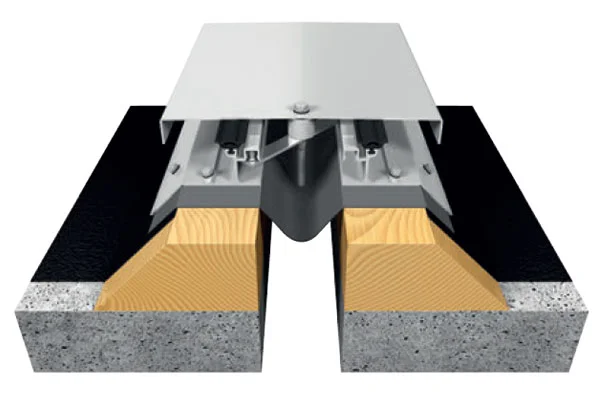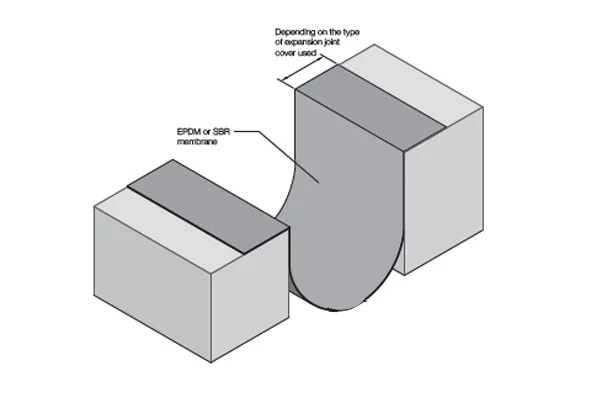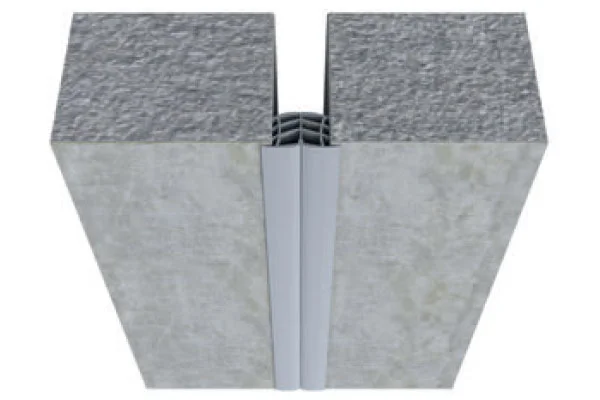Nasery, M. M., Çelik, M. & Şadoğlu, E. Damage assessment of Siverek Castle during the Kahramanmaraş earthquakes (Mw 7.7 and Mw 7.6) on 06 February 2023: Remediation and strengthening proposals. Eng. Geol. 334, 107511 (2024).
Xia, H. et al. A deep learning application for building damage assessment using ultra-high-resolution remote sensing imagery in Turkey earthquake. Int. J. Disaster Risk Sci. 14(6), 947–962 (2023).
Lee, J. H., Ansari, A., An, H. & Jeong, J. Y. Seismic loss and resilience modeling of bridges in soft soils: towards the design of sustainable transportation infrastructure facilities. Sustain. Resil. Infrastruct. 9, 1–23 (2024).
Park, J. & Towashiraporn, P. Rapid seismic damage assessment of railway bridges using the response-surface statistical model. Struct. Saf. 47, 1–12 (2014).
Wang, N., Elgamal, A. & Lu, J. Seismic response of the Eureka channel bridge-foundation system. Soil Dyn. Earthq. Eng. 152, 107015 (2022).
Liang, X. Enhancing seismic damage detection and assessment in highway bridge systems: a pattern recognition approach with Bayesian optimization. Sensors 24(2), 611 (2024).
Banerjee, S. & Shinozuka, M. Experimental verification of bridge seismic damage states quantified by calibrating analytical models with empirical field data. Earthq. Eng. Eng. Vib. 7, 383–393 (2008).
Zhang, J. et al. Nonlinear seismic response analysis of long-span railway cable-stayed bridges crossing strike-slip faults. Sci. Rep. 14(1), 25479 (2024).
Ansari, A. et al. Robustness assessment of Muscat coastal highway network (CHN) under multi-hazard scenarios focusing on traffic stability and adaptation measures. Sci. Rep. 14(1), 30632. (2024).
Ansari, A. et al. Seismic vulnerability assessment and fragility analysis of tunnels in Oman: Development of risk matrices and functionality guidelines. Structures (2024).
Ansari, A., Lee, J. H., Jang, J. G. & Alluqmani, A. E. Seismic microzonation of North Gyeongsang (South Korea) considering liquefaction potential: Application towards seismic risk assessment for Korean nuclear power plants. Soil Dyn. Earthq. Eng. 182, 108679. (2024).
de Lautour, O. R. & Omenzetter, P. Damage classification and estimation in experimental structures using time series analysis and pattern recognition. Mech. Syst. Signal Process. 24(5), 1556–1569 (2010).
Provost, F. et al. High-resolution co-seismic fault offsets of the 2023 Türkiye earthquake ruptures using satellite imagery. Sci. Rep. 14(1), 6834 (2024).
Wang, Q., Liu, K., Wang, M. & Koks, E. E. A river flood and earthquake risk assessment of railway assets along the belt and road. Int. J. Disaster Risk Sci. 12, 553–567 (2021).
Bi, K. & Hao, H. Numerical simulation of pounding damage to bridge structures under spatially varying ground motions. Eng. Struct. 46, 62–76 (2013).
Mangalathu, S., Hwang, S. H., Choi, E. & Jeon, J. S. Rapid seismic damage evaluation of bridge portfolios using machine learning techniques. Eng. Struct. 201, 109785 (2019).
Li, S. Q., Liu, H. B., Farsangi, E. N. & Du, K. Seismic fragility estimation considering field inspection of reinforced concrete girder bridges. Struct. Infrastruct. Eng. 21, 1–17 (2023).
Duan, H., Jiang, L., Wen, T. & Jiang, L. An improved interlayer area damage model for seismic damage assessment of a high-speed railway long-span arch bridge-track system. Soil Dyn. Earthq. Eng. 184, 108811 (2024).
Basöz, N. I., Kiremidjian, A. S., King, S. A. & Law, K. H. Statistical analysis of bridge damage data from the 1994 Northridge, CA, earthquake. Earthq. Spectra 15(1), 25–54 (1999).
Yashinsky, M. Performance of bridge seismic retrofits during Northridge earthquake. J. Bridg. Eng. 3(1), 1–14 (1998).
Kawashima, K. Damage of bridges resulting from fault rupture in the 1999 Kocaeli and Duzce, Turkey earthquakes and the 1999 Chi-Chi, Taiwan earthquake. Struct. Eng. Earthq. Eng. 19(2), 179–197 (2002).
Loh, C. H., Liao, W. I. & Chai, J. F. Effect of near-fault earthquake on bridges: lessons learned from Chi-Chi earthquake. Earthq. Eng. Eng. Vib. 1, 86–93 (2002).
Maruyama, Y., Yamazaki, F., Mizuno, K., Tsuchiya, Y. & Yogai, H. Fragility curves for expressway embankments based on damage datasets after recent earthquakes in Japan. Soil Dyn. Earthq. Eng. 30(11), 1158–1167 (2010).
Tokida, K. I., Oda, K., Nabeshima, Y. & Egawa, Y. Damage level of road infrastructure and road traffic performance in the mid Niigata prefecture earthquake of 2004. Struct. Eng. Earthq. Eng. 24(1), 51s–61s (2007).
Ali, S. M., Khan, A. N., Rahman, S. & Reinhorn, A. M. A survey of damages to bridges in Pakistan after the major earthquake of 8 October 2005. Earthq. Spectra 27(4), 947–970 (2011).
Ansari, A., Rao, K. S., Jain, A. K. & Ansari, A. Deep learning model for predicting tunnel damages and track serviceability under seismic environment. Model. Earth Syst. Environ. 8(4), 1–20. (2023).
Durrani, A. J., Elnashai, A. S., Hashash, Y., Kim, S. J., & Masud, A. The Kashmir earthquake of October 8, 2005: A quick look report. MAE Center CD Release 05–04. (2005).
Han, Q. et al. Seismic damage of highway bridges during the 2008 Wenchuan earthquake. Earthq. Eng. Eng. Vib. 8(2), 263–273 (2009).
Kawashima, K., Takahashi, Y., Ge, H., Wu, Z. & Zhang, J. Reconnaissance report on damage of bridges in 2008 Wenchuan, China, earthquake. J. Earthq. Eng. 13(7), 965–996 (2009).
Lin, C. C. J., Hung, H. H., Liu, K. Y. & Chai, J. F. Reconnaissance observation on bridge damage caused by the 2008 Wenchuan (China) earthquake. Earthq. Spectra 26(4), 1057–1083 (2010).
Elnashai, A. S., Gencturk, B., Kwon, O. S., Al-Qadi, I. L., Hashash, Y., Roesler, J. R., … & Valdivia, A. The Maule (Chile) earthquake of February 27, 2010: Consequence assessment and case studies. MAE Center Report No. 10–04. (2010).
Schanack, F., Valdebenito, G. & Alvial, J. Seismic damage to bridges during the 27 February 2010 magnitude 8.8 Chile earthquake. Earthq. Spectra 28(1), 301–315 (2012).
Gautam, D. & Chaulagain, H. Structural performance and associated lessons to be learned from world earthquakes in Nepal after 25 April 2015 (MW 7.8) Gorkha earthquake. Eng. Fail. Anal. 68, 222–243 (2016).
Goda, K. et al. The 2015 Gorkha Nepal earthquake: insights from earthquake damage survey. Front. Built Environ. 1, 8 (2015).
Xie, Q., Gaohu, L., Chen, H., Xu, C. & Feng, B. Seismic damage to road networks subjected to earthquakes in Nepal, 2015. Earthq. Eng. Eng. Vib. 16, 649–670 (2017).
Apaydin, N. M. “Earthquake Response of the Transportation Infrastructure in the Region Affected by the February 6 Turkiye Earthquakes’’ Part I-Roads, Railroads and Ports. Journal of Earthquake Engineering. 1-11. (2024).
Apaydin, N. M. & Sikar, R. B. Critical role of the bridges ensuring emergency services and disaster recovery in Turkey. In Bridge Maintenance, Safety, Management, Digitalization and Sustainability (eds Jensen, J. S. et al.) (CRC Press, 2024).
Bayraktar, A. et al. Seismic performance of bridge expansion joints with and without viscous dampers during the 6 February 2023 Kahramanmaraş earthquakes. Buildings 14(8), 2538 (2024).
Bayraktar, A., Ventura, C. E., Yang, T. Y., Hökelekli, E. & Taş, Y. Observed Damage Behavior of Earth Dams During the 2023 Kahramanmaraş, Turkey, Earthquakes. Geotech. Geol. Eng. 42, 1–16 (2024).
Caner, A., Cinar, M. & Ates, A. D. Observed seismic performance of buildings and bridges during a major earthquake followed by one other major earthquake in the close vicinity of the first one. Bull. Earthq. Eng. 23, 1–24 (2024).
Ozkaynak, M. I. & Cetin, K. O. The performance of Karasu Bridge following the February 6, 2023 Kahramanmaras-Turkiye earthquake sequence. Eng. Geol. 335, 107512 (2024).
Ozkula, G. et al. Field reconnaissance and observations from the February 6, 2023, Turkey earthquake sequence. Nat. Hazards 119(1), 663–700 (2023).
Shirato, M. & Odawara, Y. Field observations on the damage to road bridges after the 2023 Turkey earthquake. Earthq. Spectra 40(2), 997–1018 (2024).
Tobita, T., Kiyota, T., Torisu, S., Cinicioglu, O., Tonuk, G., Milev, N., … & Shiga, M. (2024). Geotechnical damage survey report on February 6, 2023 Turkey-Syria Earthquake, Turkey. Soils and Foundations, 64(3), 101463.
Capacci, L., Biondini, F. & Frangopol, D. M. Resilience of aging structures and infrastructure systems with emphasis on seismic resilience of bridges and road networks. Resil. Cities Struct. 1(2), 23–41 (2022).
Rahman, A. U. et al. An updated earthquake catalogue and source model for seismic hazard analysis of Pakistan. Arab. J. Sci. Eng. 46, 5219–5241 (2021).
Ozsarac, V., Monteiro, R. & Calvi, G. M. Probabilistic seismic assessment of reinforced concrete bridges using simulated records. Struct. Infrastruct. Eng. 19(4), 554–574 (2023).
Ozsarac, V., Monteiro, R., Askan, A. & Calvi, G. M. Impact of local site effects on seismic risk assessment of reinforced concrete bridges. Soil Dyn. Earthq. Eng. 164, 107624 (2023).
Mwafy, A., Kwon, O. S. & Elnashai, A. Seismic assessment of an existing non-seismically designed major bridge-abutment–foundation system. Eng. Struct. 32(8), 2192–2209 (2010).
Wang, W. & Su, C. Automatic classification of reinforced concrete bridge defects using the hybrid network. Arab. J. Sci. Eng. 47(4), 5187–5197 (2022).
Zhao, D., Chen, B. & Sun, J. Enhancing performance of engineering structures under dynamic disasters with ECC–FRP composites: A review at material and member levels. Buildings 13(8), 2099 (2023).
Prendergast, L. J. et al. Structural health monitoring for performance assessment of bridges under flooding and seismic actions. Struct. Eng. Int. 28(3), 296–307 (2018).
Tesfamaraim, S. & Saatcioglu, M. Seismic risk assessment of RC buildings using fuzzy synthetic evaluation. J. Earthq. Eng. 12(7), 1157–1184 (2008).
Kir, G. J. & Yuan, B. Fuzzy Sets and Fuzzy Logic—Theory and Applications (Prentice-Hall, 1995).
Medasani, S., Kim, J. & Krishnapuram, R. An overview of membership function generation techniques for pattern recognition. Int. J. Approx. Reason. 19(3–4), 391–417 (1998).
Saaty, T. L. The analytic hierarchy process (AHP). J. Oper. Res. Soc. 41(11), 1073–1076 (1980).
Power, M. S., Rosidi, D., & Kaneshiro, J. Y. Seismic vulnerability of tunnels and underground structures revisited. In North American Tunneling’98American Underground Construction Association. (1998).
Saaty, T. L. A scaling method for priorities in hierarchical structures. J. Math. Psychol. 1, 57–68 (1977).
Crawford, G. & Williams, C. A note on the analysis of subjective judgment matrices. J. Math. Psychol. 29(4), 387–405 (1985).
Aguarón, J. & Moreno-Jiménez, J. M. The geometric consistency index: Approximated thresholds. Eur. J. Oper. Res. 147(1), 137–145 (2003).
Sadiq, R., Husain, T., Veitch, B. & Bose, N. Risk-based decision-making for drilling waste discharges using a fuzzy synthetic evaluation technique. Ocean Eng. 31(16), 1929–1953 (2004).
Kiani, H. & Nasrollahzadeh, K. Fuzzy logic approach for seismic fragility analysis of RC frames with applications to earthquake-induced damage and construction quality. Structures 55, 1122–1143 (2023).
Lin, J. W. Fuzzy regression decision systems for assessment of the potential vulnerability of bridge to earthquakes. Nat. Hazards 64, 211–221 (2012).
Scozzese, F. & Minnucci, L. Seismic risk analysis of existing link slab bridges using novel fragility functions. Appl. Sci. 14(1), 112 (2023).
Monteiro, R. Sampling based numerical seismic assessment of continuous span RC bridges. Eng. Struct. 118, 407–420 (2016).
Chiu, C. K., Lyu, Y. C. & Jean, W. Y. Probability-based damage assessment for reinforced concrete bridge columns considering the corrosive and seismic hazards in Taiwan. Nat. Hazards 71, 2143–2164 (2014).
Monti, G. & Nistico, N. Simple probability-based assessment of bridges under scenario earthquakes. J. Bridg. Eng. 7(2), 104–114 (2002).







